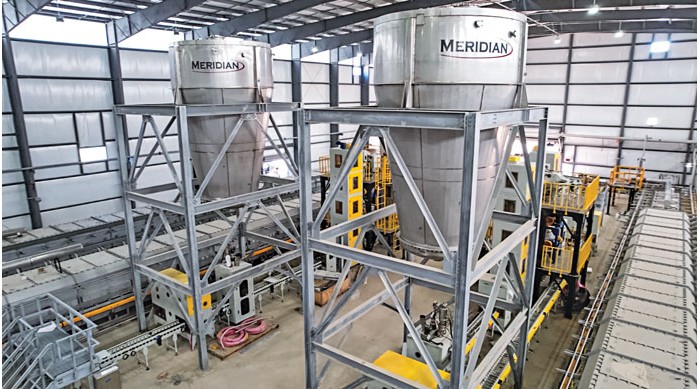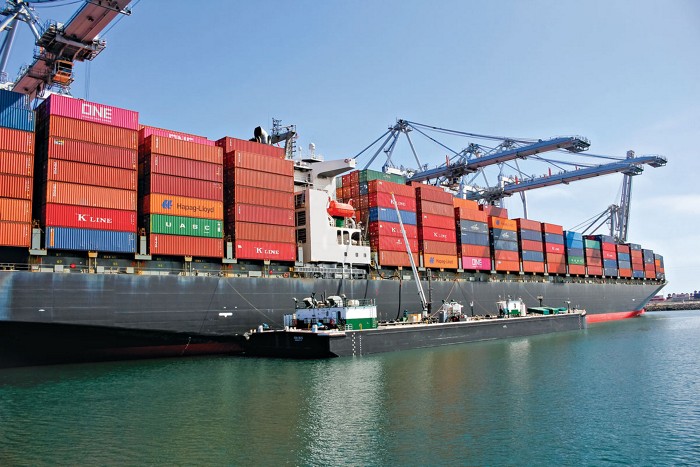Advertisement
Grab your lab coat. Let's get started
Welcome!
Welcome!
Create an account below to get 6 C&EN articles per month, receive newsletters and more - all free.
It seems this is your first time logging in online. Please enter the following information to continue.
As an ACS member you automatically get access to this site. All we need is few more details to create your reading experience.
Not you? Sign in with a different account.
Not you? Sign in with a different account.
ERROR 1
ERROR 1
ERROR 2
ERROR 2
ERROR 2
ERROR 2
ERROR 2
Password and Confirm password must match.
If you have an ACS member number, please enter it here so we can link this account to your membership. (optional)
ERROR 2
ACS values your privacy. By submitting your information, you are gaining access to C&EN and subscribing to our weekly newsletter. We use the information you provide to make your reading experience better, and we will never sell your data to third party members.
Trade
Warnings grow about impact of tariffs on chemicals from China
New taxes on Chinese imports would seriously harm U.S. chemical and drug sectors, business leaders claim
by Jean-François Tremblay
August 23, 2018
| A version of this story appeared in
Volume 96, Issue 34

Slapping a 25% tariff on $200 billion worth of Chinese imports would raise the prices of countless products and damage U.S. companies, representatives from the chemical industry told the Office of the U.S. Trade Representative at public hearings last week. After imposing a 25% tariff on $50 billion worth of Chinese goods earlier this summer, USTR is now considering taxing other Chinese products worth four times as much at the same rate.
Warpath
Actions from both sides have steadily escalated since the spring.
April 6: Hoping to force China to change certain business practices, the U.S. proposes a 25% custom duty on $50 billion worth of Chinese imports.
July 6: The U.S. starts collecting 25% tax on $34 billion worth of Chinese goods. China mirrors the move.
July 10: The U.S. threatens a 10% tariff on $200 billion worth of Chinese goods.
Aug. 2: The U.S. raises proposed 10% tariff to 25%. China threatens duties ranging from 5 to 25% on $60 billion worth of U.S. imports.
Week of Aug. 20: The Office of the U.S. Trade Representative holds public hearing on proposed 25% tariff on $200 billion worth of Chinese goods.
Aug 23: The U.S. starts collecting 25% tax on $16 billion worth of Chinese goods. China mirrors the move and says it will formally complain to the World Trade Organization.
Sources: USTR, Chinese Ministry of Commerce, China.org.cn
Chemicals and plastics represent more than $16 billion worth of the goods on the $200 billion list, according to the American Chemistry Council, an industry association. Moving ahead with the new tariffs “would have a potentially irreparable impact on our industry’s economic structure and supply chain,” ACC’s director of international trade, Ed Brzytwa, warned at the hearing. The group also cautioned that retaliatory tariffs would close off the Chinese market to U.S. chemical producers.
“The best way to preserve the interests of the U.S. chemicals industry and indeed the entire manufacturing sector is by removing chemicals from the front lines of this trade war,” Brzytwa testified.
Bulk Pharmaceuticals Task Force, an affiliate of the Society of Chemical Manufacturers & Affiliates, another trade group, predicted that the tariffs would lead to higher drug prices. Numerous U.S.-produced pharmaceuticals depend on chemicals that are made only in China, it noted.
President Donald J. Trump directed USTR to propose tariffs in April to coerce China to modify trade and business practices that the U.S. deems unfair. Trump and USTR subsequently escalated the threats, and China has mirrored U.S. moves in retaliation.
The latest proposed tariffs have generated intense public reaction. USTR had to double to six the number of days devoted to hearings. More than 2,000 groups and individuals submitted comments.
Numerous chemical companies submitted letters explaining the harm the tariffs would do to them and their customers.
For example, the chemical maker SNF Holding has been importing quaternized dimethylaminoethyl acrylate from a sister company in China because of an industry-wide shortage of capacity in the U.S. The chemical is widely used to treat municipal drinking water. The company warned that the proposed tariff on this product could raise the cost of water treatment by 20%.
“This particular tariff will not increase costs for the latest electronic gadget or luxury item,” SNF President John Pittman wrote. “Instead, this tariff will increase costs for drinking water and waste treatment, a basic human necessity.”
The tax would also reduce SNF’s cash flow and slow an ongoing investment in U.S. capacity in Riceboro, Ga., he added.
Kraton, which produces styrene-isoprene-styrene (SIS) polymers in Belpre, Ohio, argued against a tariff on isoprene. CEO Kevin M. Fogarty wrote that Kraton imports isoprene from China and other countries because U.S. output of the monomer, a by-product of ethylene production, is limited.
SIS, Fogarty noted, is not on the list of products being targeted for tariffs. Putting a tariff on isoprene would allow foreign SIS producers, including those in China, to undercut Kraton and harm its business.
G. Brandt Jordan, a consultant advising industrial dye users, wrote that imposing a 25% tariff on Chinese-made dyes might have made sense in the 1990s when the U.S. still had a dye industry. But today, with the domestic industry long gone and its craftspeople retired, “the net effect of what you are proposing will be an additional tax on the importers, which will ultimately be passed on to the consumers.”




Join the conversation
Contact the reporter
Submit a Letter to the Editor for publication
Engage with us on Twitter